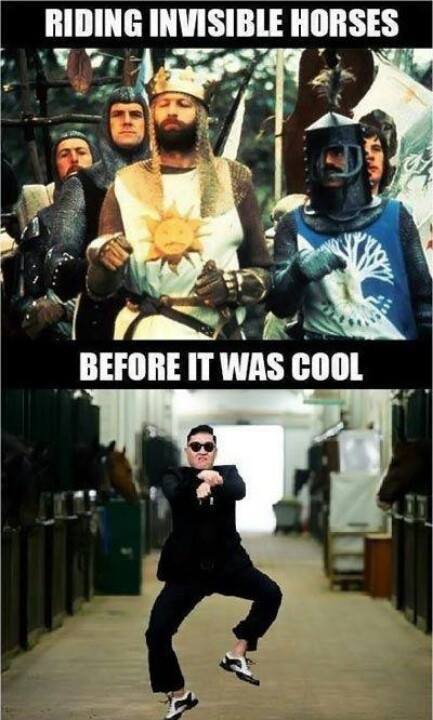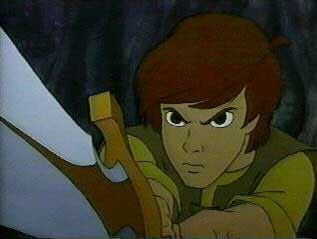Okay, the first thing I would like to get out of the way is that the knight in the cart had poor decision making skills when it came to transportation. He clearly didn't watch Monty Python because it's always been cool to ride pretend horses (apparently). What's with putting multiple real horses and his dignity in danger when he could ride up in style like these guys?
On a more serious but nowhere near serious note, this knight is 50 shades of obsessed. Who cherishes a lady's hair like that? If there were doubts of him being a stalker before this moment, they're gone now. If you witnessed someone doing his with hair they found in a comb present day, you would run, fast, and probably until you found a lock to hide behind. I can't call the knight crazy because he is still somewhat in his right mind at other moments. He's not letting this obsession control his every move completely, but wow. Just wow.
Thinking about the women who enjoyed reading this story, it makes sense because it probably does help them satisfy their yearning for the love their husbands can never give them. This story lets the women live vicariously through the queen's character. It helps them escape their reality, which is the same reason many people read books today. The fantasy they escape to is questionable, but I guess it's relative to some extent.
To close, I'll just leave this here (thank God for tumblr).









